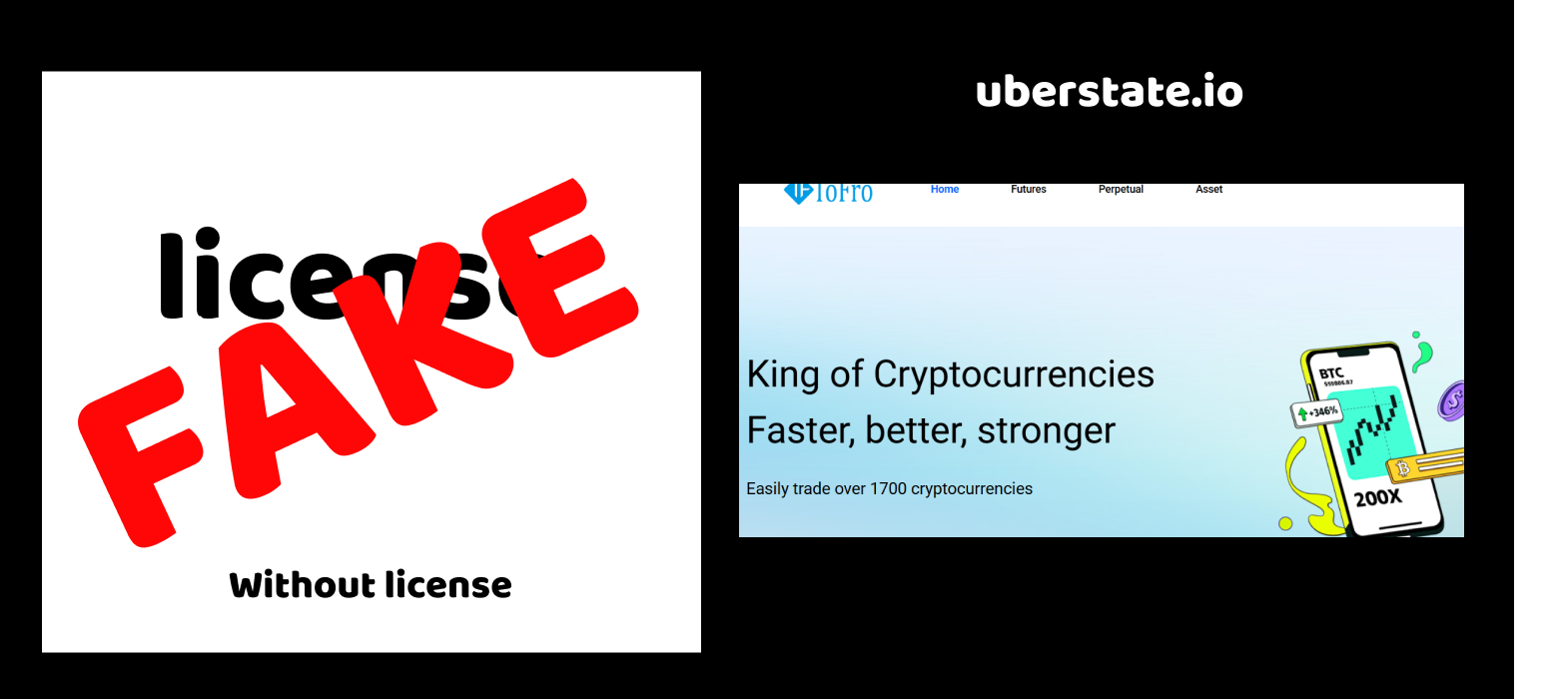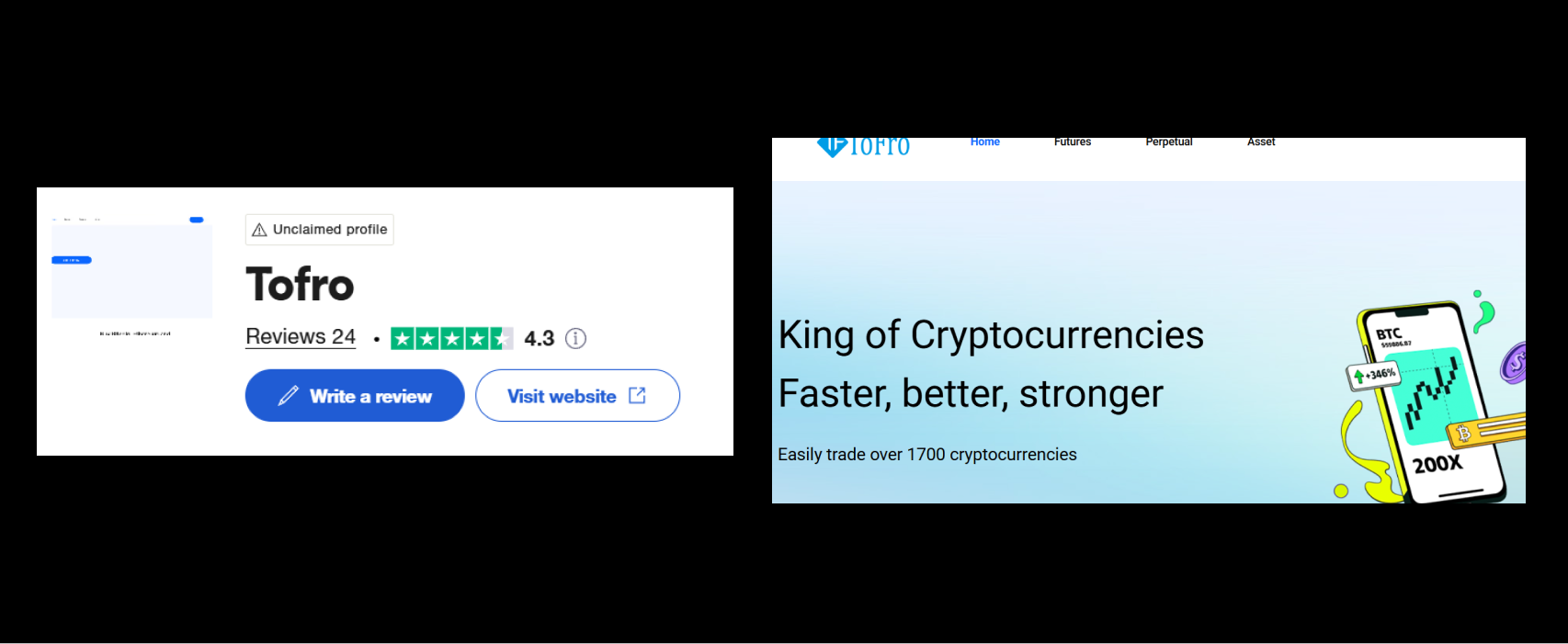To Fro Review – Too Slick to Be Real?

At first glance, To Fro might look like just another modern forex broker — clean website, promising features, reassuring talk about security and success. But something about it feels off. You know that feeling when a place is too polished, too perfect, too eager to convince you it’s legit? That’s exactly the vibe we got.
So, we decided to take a closer look. Checked the domain history. Looked into their license. Dug through reviews. What we found painted a very different picture — one that doesn’t scream “trusted broker”, but instead raises a bunch of red flags.
Because let’s face it — in the world of online trading, appearance is easy to fake. And To Fro seems to be playing that game a little too well.
Welcome to the To Fro brand review — let’s break down the facts they don’t want you to notice.
Broker Info – To Fro at a Glance
| Parameter | Details |
| Broker Name | To Fro |
| Domain Registration | 30.09.2023 |
| License Type | Fake (Mwali – offshore) |
| Leverage | 1:1000 |
| Account Types | Not specified |
| Contact Email | [email protected] |
| Contact Phone | Not provided |
| Language of Website | English |
| Company Name Claimed | Not clearly stated |
| Trading Platform | Unknown (not specified clearly) |
And here’s what jumps out right away…
No phone number. No clear company name. Vague details about account types. An enormous 1:1000 leverage — which isn’t just risky, it’s the kind of setup scam brokers love. Why? Because high leverage = fast liquidation of your deposit. Simple as that.
Also notice how they avoid specifying the trading platform. Real brokers proudly promote MetaTrader, cTrader, or their own software. But here? Silence.
All of this combined makes it feel like they’re intentionally keeping things vague — because the less you know, the easier it is to trap you.
Argument 1: Suspiciously Fresh Domain – Red Flag from the Start
While digging into To Fro’s background, we stumbled upon something that instantly raised eyebrows. Their domain was registered on September 30, 2023. Not even a full year ago.
Now, here’s the thing. On their website, To Fro tries hard to pass off as a solid, seasoned broker. They talk like they’ve been around for years, helping traders succeed, building trust, growing a client base. But how does that line up with a domain that was literally born yesterday?
Isn’t that a bit strange?
See, real brokers with a long-standing presence don’t launch brand-new websites out of the blue. And even if they do rebrand, they usually mention it clearly. But here? Silence. No transparency, no explanation. Just a slick-looking site built on a domain that screams “freshly minted.”
And let’s ask the real question here: why would an honest broker pretend to be older than they are? Unless, of course, they’re trying to appear more credible than reality allows.
When we wrapped up our domain check, one thing was clear — the story To Fro is telling doesn’t match the facts. And in the scam world, that kind of mismatch is rarely innocent.
Argument 2: Fake License That Doesn’t Hold Up
After checking out the so-called “regulation” of To Fro, we couldn’t help but notice something fishy. They claim to be regulated, but guess where from? The so-called authority behind their license is Mwali International Services Authority — a name that might sound exotic, but in reality, it’s completely toothless when it comes to financial oversight.
Let’s break that down.
Mwali is part of the Comoros Islands — a tiny offshore jurisdiction that’s become a go-to spot for shady brokers who want to flash a “license” without being held accountable. Why? Because these regulators don’t actually regulate. There’s zero transparency, no consumer protection mechanisms, and no real oversight. It’s a stamp, not a shield.
So the big question becomes: why would a trustworthy broker get licensed there, of all places? Especially when serious, transparent brokers usually operate under the watchful eyes of FCA, CySEC, ASIC, or at least some mid-tier regulator with actual standards?
Because let’s be honest — scammers don’t need real licenses. They just need something that looks official enough to fool beginners. A fancy PDF, a shiny badge on the homepage, and boom — credibility. At least for those who don’t look deeper.
But we did. And when we saw that Mwali was behind To Fro’s “regulation”, the story became pretty clear. They’re not regulated. They’re pretending to be.
And that makes all the difference.

Argument 3: Overly Polished Reviews That Scream Fake
So we jumped onto Trustpilot to check out what people are saying about To Fro, and… well, things looked a little too perfect. The score? 4.3 out of 5 — which at first glance doesn’t seem bad at all. But let’s slow down and actually look at the reviews.
That’s where it gets interesting.
Many of the positive reviews are written in the same tone. Almost copy-paste level similarities. They’re filled with vague praise like “great service,” “excellent platform,” and “fast withdrawals.” No details. No real trading experiences. Nothing personal. Just generic fluff.
And if you’ve ever dealt with real traders, you know that’s not how they talk. Real users mention spreads, execution speed, customer support hiccups — even when they’re happy. But To Fro’s reviews? It’s like they were all written in a rush by the same person… or bot.
We’ve seen this pattern many times: fake brokers stuffing Trustpilot with fake praise to boost credibility. It’s the oldest trick in the scam playbook. And let’s not ignore the obvious — why would a brand-new broker (domain registered just months ago) already have this many glowing reviews?
That alone feels off.
On top of that, when there are negative reviews, they’re usually buried or ignored. No replies. No resolutions. No customer support stepping in to clarify anything — which, by the way, is exactly what real brokers usually do to save face.
So yeah. On paper, 4.3 stars looks fine. But when you peel back the surface? It’s just makeup on a scam.

Final Verdict: To Fro Is Playing a Dangerous Game
After digging through everything — the newly minted domain, the fake offshore license, and the eerily uniform reviews — one thing became painfully clear: To Fro isn’t here to build long-term trust. They’re here to cash in fast before vanishing.
Think about it. Why would a legitimate broker:
- Pretend to be an experienced player while their site barely existed a few months ago?
- Choose a worthless offshore “regulator” that offers no real protection to traders?
- Flood Trustpilot with robotic reviews that read like they came from a content farm?
All these things — when you stack them together — stop looking like coincidences. They start to look like a plan. A plan designed to lure in unsuspecting traders, take their money, and disappear into the digital mist.
And let’s be honest: why would scammers want clients who ask questions and look into the details? They don’t. That’s why they build these perfect-looking facades — to keep people from looking deeper.






